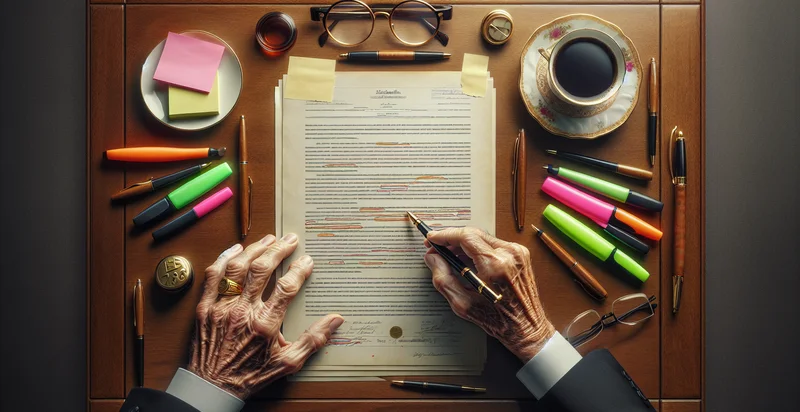Identify if a legal document is real
using AI
Below is a free classifier to identify if a legal document is real. Just upload your image, and our AI will predict if a legal document is real - in just seconds.

Contact us for API access
Or, use Nyckel to build highly-accurate custom classifiers in just minutes. No PhD required.
Get started
import nyckel
credentials = nyckel.Credentials("YOUR_CLIENT_ID", "YOUR_CLIENT_SECRET")
nyckel.invoke("if-a-legal-document-is-real", "your_image_url", credentials)
fetch('https://www.nyckel.com/v1/functions/if-a-legal-document-is-real/invoke', {
method: 'POST',
headers: {
'Authorization': 'Bearer ' + 'YOUR_BEARER_TOKEN',
'Content-Type': 'application/json',
},
body: JSON.stringify(
{"data": "your_image_url"}
)
})
.then(response => response.json())
.then(data => console.log(data));
curl -X POST \
-H "Content-Type: application/json" \
-H "Authorization: Bearer YOUR_BEARER_TOKEN" \
-d '{"data": "your_image_url"}' \
https://www.nyckel.com/v1/functions/if-a-legal-document-is-real/invoke
How this classifier works
To start, upload your image. Our AI tool will then predict if a legal document is real.
This pretrained image model uses a Nyckel-created dataset and has 2 labels, including Fake Document and Real Document.
We'll also show a confidence score (the higher the number, the more confident the AI model is around if a legal document is real).
Whether you're just curious or building if a legal document is real detection into your application, we hope our classifier proves helpful.
Related Classifiers
Need to identify if a legal document is real at scale?
Get API or Zapier access to this classifier for free. It's perfect for:
- Document Verification for Financial Institutions: Financial institutions can utilize the legal document identifier to authenticate loan agreements, contracts, and other critical documents before processing transactions. This ensures that only valid and legally binding documents are considered, mitigating risks related to fraud and compliance.
- e-Discovery in Legal Firms: Law firms can implement this function in their e-discovery processes to quickly identify and verify the authenticity of legal documents. This will enhance their efficiency in case preparation by reducing the time spent on validating documents received from opposing parties.
- Compliance Checks for Corporations: Corporations can leverage the identifier to perform compliance audits, ensuring that all legal documents comply with regulatory requirements. By automatically verifying the authenticity of contracts and agreements, they can reduce the risk of potential legal disputes and penalties.
- Real Estate Transactions: Real estate companies can adopt this technology to verify property titles, deeds, and other essential legal documents. By ensuring the authenticity of paperwork, they can help prevent fraud and protect buyers and sellers during property transactions.
- Online Notary Services: Online notary services can utilize this identifier to authenticate documents before notarization. This would enhance the security and trustworthiness of remote notarization processes, ensuring that only legitimate documents are notarized, thereby protecting all parties involved.
- Blockchain Document Verification: Companies using blockchain technology for document storage can integrate this identifier to verify legal documents before they are recorded. This would increase confidence in the immutability and legitimacy of documents stored on the blockchain, thereby enhancing transactional integrity.
- Insurance Claims Processing: Insurance companies can implement this function in their claims processing systems to validate legal documents submitted by clients. This would reduce the incidence of fraudulent claims and ensure that only legitimate legal documentation is accepted, streamlining claims handling and payment processes.


